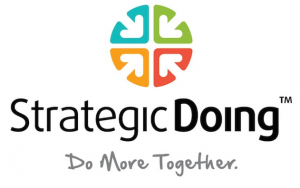By Titus Tomlinson and Aniko Drlik-Muehleck
History and relationships in rural communities run deep. This creates a rich web of networks and shared wisdom that can support a community through tough times.
The flip-side of longstanding relationships, however, can be paralysis. As humans, we remember the past and in particular, we remember the wrongs of the past. If someone snubs or undermines me, I’m not likely to want to work with them again. I might even go so far as to tell all my friends and colleagues not to work with them again. Word spreads quickly, and factions start to develop; we dig in and don’t cooperate with people or groups we don’t respect.
Sometimes, it’s perfectly legitimate to cut off relationships. You don’t, for example, want to keep working with someone who is stealing from you. In the context of community development, however, holding grudges does not pay off. If you’re serious about getting things done in your community, you can’t let the past get in your way.
Here at the Community Service Center, we’ve been experimenting with the Strategic Doing framework as a way to move community conversations beyond the usual sticking points of tense relationships and power struggles. It is never easy to change the direction and mood of a community conversation, but here’s something we’ve tried that you might be interested in bringing to your own community work: The Trust Agreement.
The Trust Agreement is simple, but powerful:
We believe in behaving in ways that build trust and mutual respect. That means:
- Leave your ego at the door.
- The past is the past.
- Treat others with the respect you hope to receive in return.
- We are a coalition of the willing…
- …ALWAYS focus on the positive. We’re here to talk about what we CAN do, not what we can’t.
When you’re coming in to a particularly difficult meeting where you know egos and historical grudges might be at play, consider beginning your discussion by laying out these concepts. Then courteously yet firmly let meeting participants know that if they can’t embrace the Trust Agreement, this meeting probably isn’t for them.

